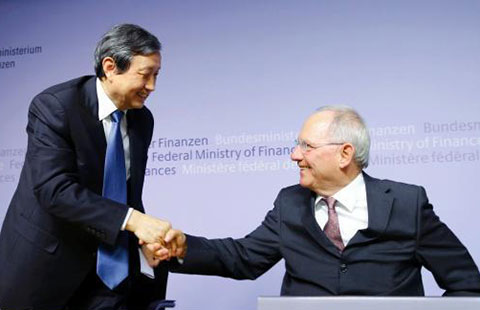State Council vows measures to boost e-commerce
(Xinhua) Updated: 2015-04-02 09:43BEIJING - The State Council, China's cabinet, has promised policies to boost e-commerce, including through cutting red tape and liberalizing investment rules covering a sector it recognizes as very important to the economy.
E-commerce is significant in integrating traditional and emerging industries, reducing logistical costs, encouraging entrepreneurship, creating jobs and lifting consumption, while its development will also help industrial upgrading, said a statement released after an executive meeting of the State Council presided over by Premier Li Keqiang on Wednesday.
To smooth the way for e-commerce to grow, the government will abandon rigid registry requirements on e-commerce businesses, encourage venture capital to enter the sector and reduce share-holding restrictions on foreign investment, the statement said.
The State Council also plans to coordinate development among e-commerce, trade, logistics, industrial production and financial services.
Online shopping, networked manufacturing, cross-border e-commerce, and links between brick-and-mortar stores and e-commerce will be promoted in a bid to boost consumption.
Meanwhile, the government will try to shore up consumer confidence in e-commerce by improving law enforcement, protecting consumer rights, clamping down on online fraud and maintaining online transaction security, the statement said.
Developing e-commerce sector is an important part of China's Internet Plus action plan, a notion mentioned by Premier Li when he delivered the 2015 government work report in early March.
It refers to integrating mobile Internet, cloud computing, big data and the Internet of Things with modern manufacturing, encouraging the healthy development of industrial networks and Internet banking, and helping Internet companies increase their international presence.
- China broadens investment scope for social security fund
- Has spring sprung for housing sector?
- Animated programs may incur govt wrath
- Amateur investors continue to fuel 'world-beating' equity frenzy
- Support measures give boost to market
- Tectonic shifts hit traditional lenders
- Deposit insurance a 'solution for failing banks'
- Business travel to see robust growth this year

















